Concord ABC Board
Our History
Serving Our Community
since 1967
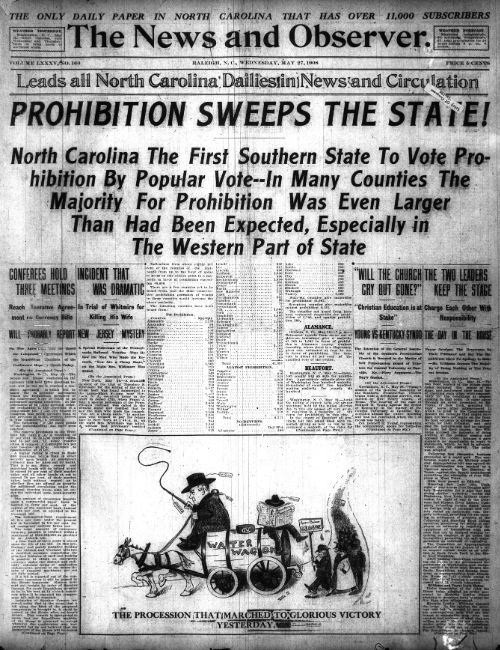
of Prohibition in North Carolina
Prohibition Enacted in North Carolina by Popular Vote
1908
North Carolina is the first southern state to enact prohibition by popular vote in 1908.
Nationwide Prohibition
1919-1933
United States Bans All Alcohol
What Happened
Although statewide prohibition is in place in North Carolina as early as January 1909, it isn’t until January 1920, after the ratification of the 18th Amendment, when a nationwide ban goes into effect across the United States. The national crackdown on alcohol sparks widespread bootlegging. Concord, NC, becomes a hotspot for moonshine.
Local Impact
Concord’s location is strategic for bootleggers due to its proximity to major routes and the rural areas where illicit moonshine production thrives. The region’s involvement in bootlegging contributes to the development of skilled drivers and modified cars, setting the stage for what would eventually evolve into stock car racing and NASCAR.
What Life Was Like:
This period is marked by dramatic clashes between local law enforcement and bootleggers, deeply influencing the local culture and community attitudes towards alcohol regulation. The legacy of Prohibition is felt long after its repeal, influencing the eventual establishment of controlled alcohol distribution through the ABC system.
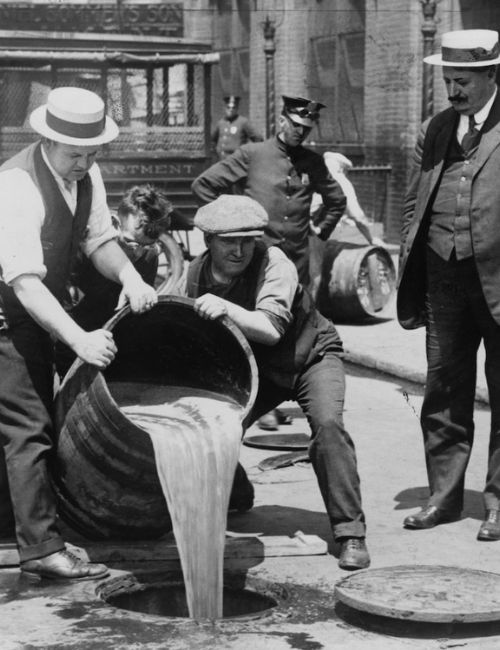
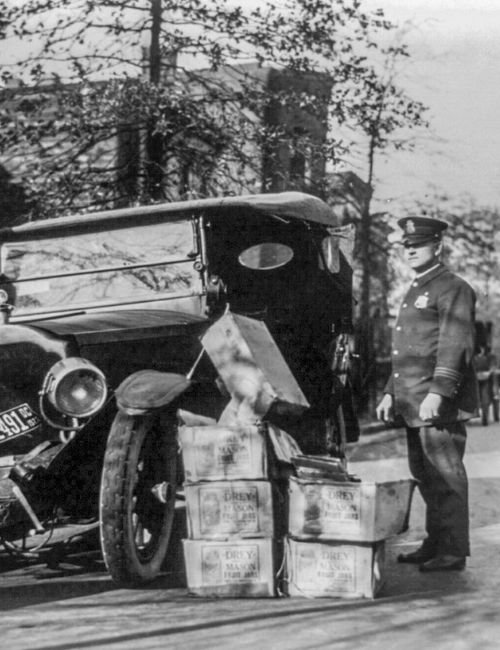
The Prohibition era led to high speed driving and the wrecks that often occurred as a result of trying to outrun law enforcement officials.
The Prohibition period leads to the development of the automotive and driving skills and practices that would evolve into NASCAR.
Repeal of Eighteenth Amendment
December 1933
Prohibition Ends
What Happened
Prohibition is repealed nationally with the ratification of the 21st Amendment. However, North Carolina remains dry under state laws until 1935, and even after, allows alcohol sales only under tightly regulated conditions.
Aftermath in Concord
The repeal leads to a gradual normalization of alcohol sales, though it takes several decades before local referenda, like the one that happened in 1967 in Concord, formally establish local ABC boards to manage these sales responsibly and legally.
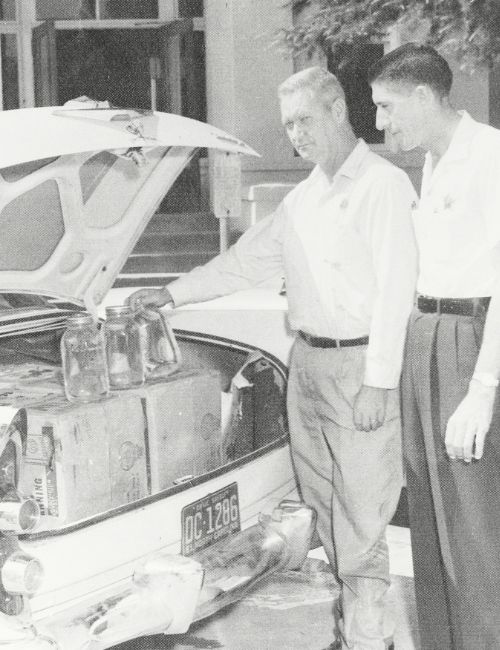
Sheriff Ben Boyles and George H.C. Shutt find a car trunk filled with white lightning, circa 1950s. (Photo: Davie County Public Library)
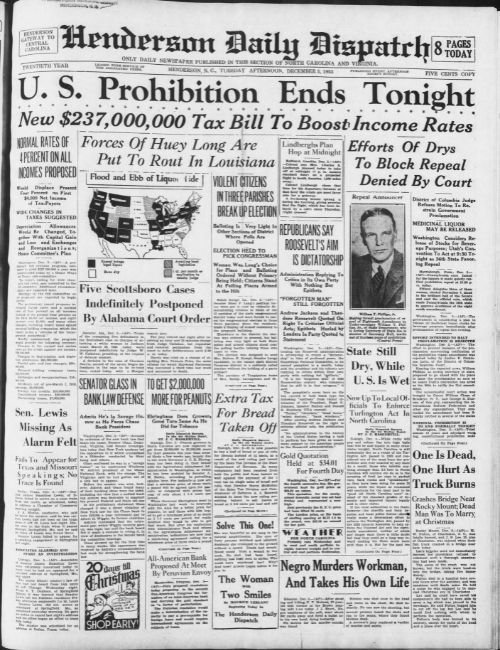
North Carolina Authorizes Local ABC Boards
1937
NCGA Passes ABC Board Legislation
What Happened
The North Carolina General Assembly passes legislation permitting the establishment of local Alcoholic Beverage Control (ABC) boards to manage alcohol sales at the county or city level. This move aims to provide a regulated framework for alcohol distribution following the end of Prohibition.
Local Impact
This act allows local communities the autonomy to decide whether to allow alcohol sales and to manage them through local ABC boards, reflecting a shift towards local control and regulation of alcohol.
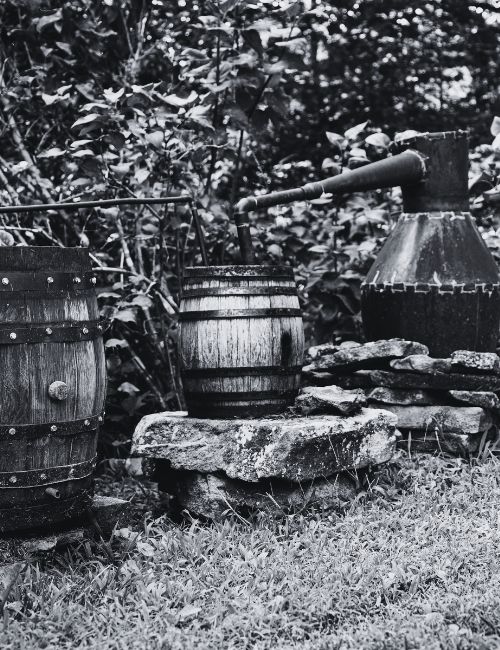
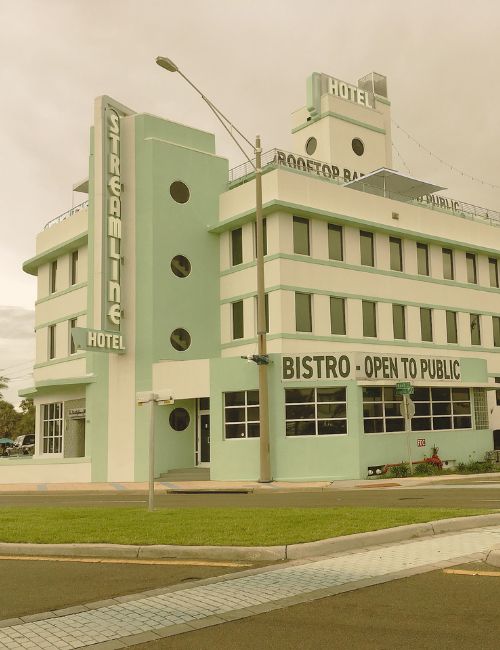
NASCAR was born at the Streamline Hotel in Daytona Beach, Florida in December 1947.
From Rum Runners to Racecars
December 1947
Birth of NASCAR
What Happened
In December 1947, Bill France Sr. organized a meeting at the Streamline Hotel in Daytona Beach, Florida, which was attended by influential figures in the world of stock car racing. This meeting led to the creation of the National Association for Stock Car Auto Racing (NASCAR). The organization was formalized to govern and promote stock car racing in the United States, providing a structured set of rules and a championship framework for what had been a loosely organized and often chaotic racing format.
Longterm Impact
The founding of NASCAR had a profound impact on the motor sports industry and American culture. It professionalized stock car racing, brought standardization and safety regulations, and transformed it from a regional pastime with roots in Prohibition-era bootlegging into a nationally recognized sport. NASCAR quickly became a cornerstone of American motor sports, influencing countless drivers, creating a massive fan base, and fostering a multi-billion dollar industry centered around automotive racing.
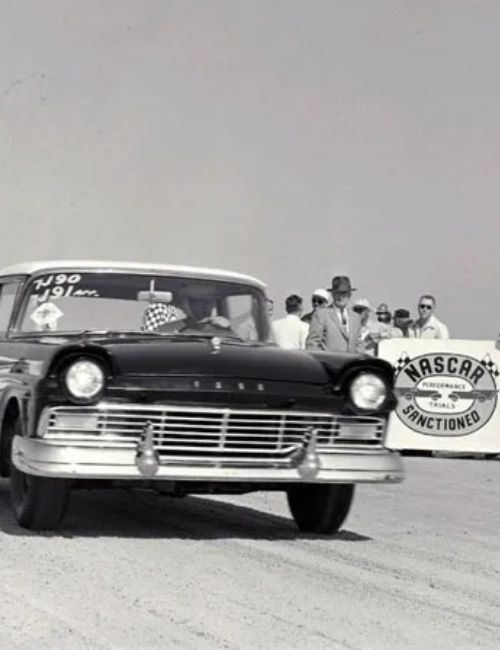
NASCAR took a regional pasttime with roots in Prohibition-era bootlegging and turned it into what would become a nationally recognized sport.
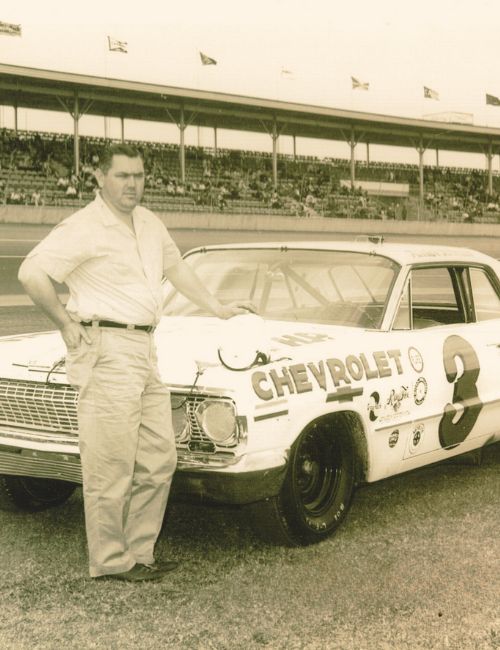
Before liquor could be legally sold in North Carolina, NASCAR legend Junior Johnson spent a year in prison for bootlegging.
A New Era in Concord
June 1960
Charlotte Motor Speedway
What Happened
Charlotte Motor Speedway, located right here in Concord, opened its doors in June 1960. Built to accommodate the growing popularity of stock car racing, the speedway was the brainchild of Bruton Smith and Curtis Turner, designed to be a major hub for NASCAR events.
NASCAR in Concord
The opening of Charlotte Motor Speedway marked a significant development in the racing world, bringing major NASCAR events to Concord and enhancing the area’s reputation as a premier destination for motor sports. It not only boosted the local economy through tourism but also solidified North Carolina’s status as a central figure in American auto racing history.
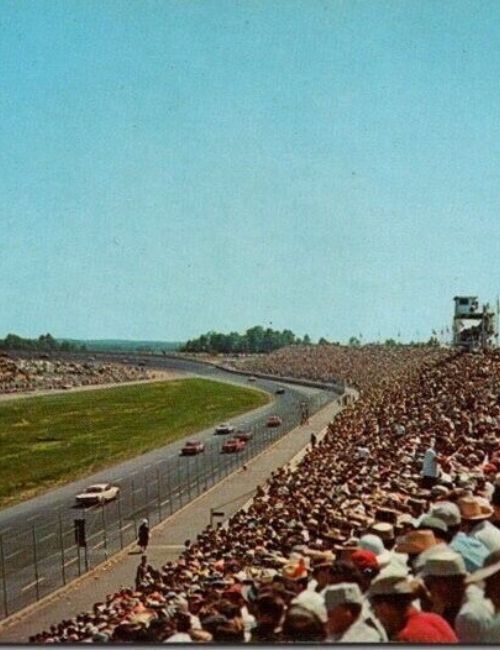
Charlotte Motor Speedway
from the End of Prohibition to the establishment of the Concord ABC Board
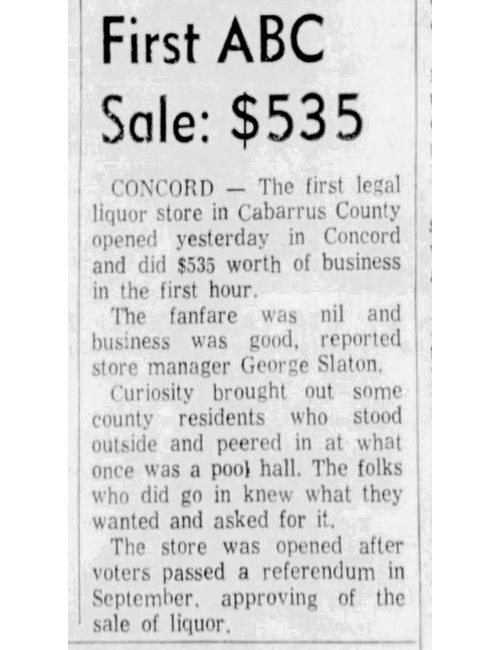
Current number of ABC Stores in and around Concord
Concord ABC Board Established
ABC Comes to Concord
What Happened
More than three decades after the statewide authorization, the citizens of Concord vote to establish their own ABC Board. The first store opens the same year, marking the beginning of regulated alcohol sales in Concord.
Slow and Deliberate
The delay in establishing the Concord ABC Board reflects a period of community deliberation and evolving social attitudes towards alcohol. It underscores the cautious approach taken by many North Carolina communities, balancing economic benefits with social values and public health considerations.
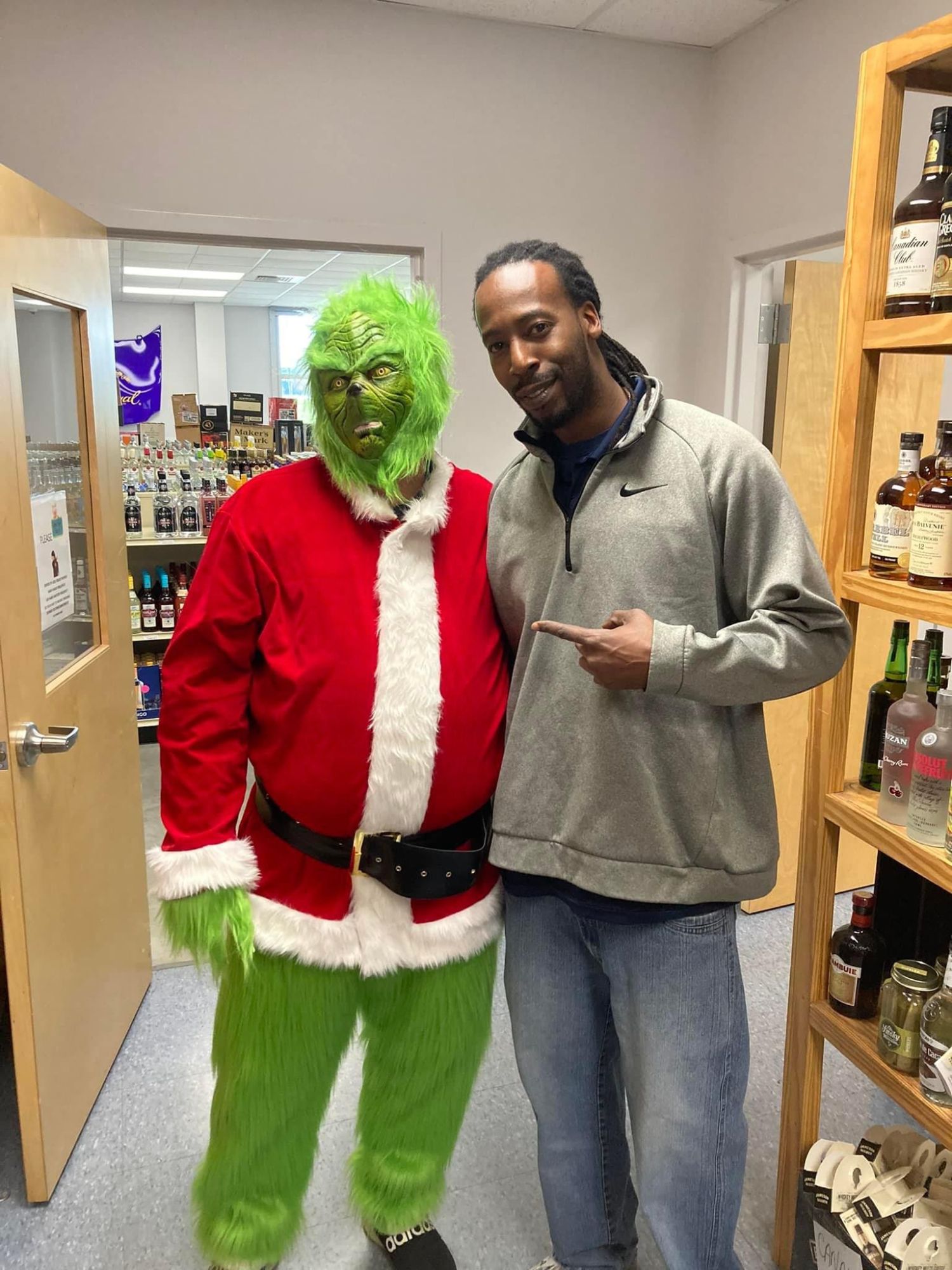
The Grinch visiting the Concord ABC Warehouse
Opening Dates of Concord ABC Stores
